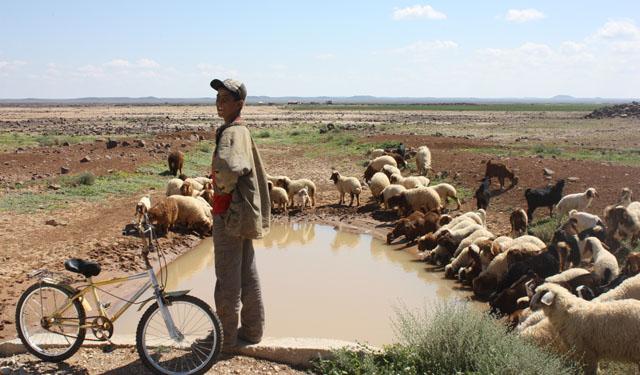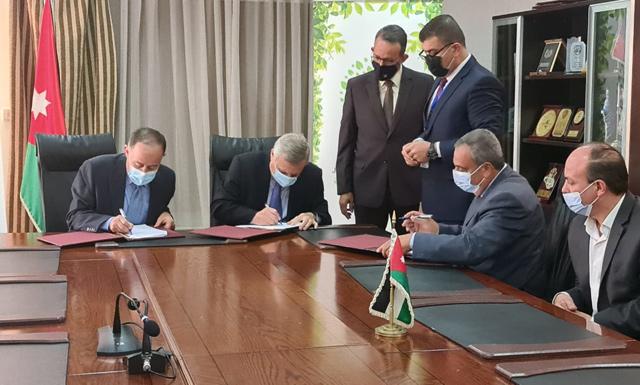You are here
Southern badia livestock breeders to receive financial, technical support
By Hana Namrouqa - Aug 26,2014 - Last updated at Aug 26,2014
AMMAN — Livestock breeders in the southern badia will receive financial and technical support under seven agreements signed on Tuesday to improve animal production and support local communities in the badia.
The Environment Ministry, the Jordanian Cooperative Association and a number of livestock breeders’ societies in the southern badia signed the agreements.
Minister of Environment Taher Shakhshir said the agreements — worth JD543,000 — aim at boosting animal production in the badia and rehabilitate its natural pastures.
“The agreements support income-generating projects and development of local communities in southern badia. Similar agreements will be signed later with local communities in central and northern badia,” Shakhshir said at the signing ceremony.
Under the agreements, the ministry will finance projects for dairy and fodder production, provide livestock breeders with veterinary services, training and awareness as well as barley and improved livestock, free of charge.
Shakhshir said providing livestock breeders with improved livestock seeks to encourage them to improve animal production in the area, while offering barley aims at preventing them from grazing their sheep on pastures that are undergoing rehabilitation.
The minister noted that the agreements are funded by the environmental compensation granted to Jordan by the United Nation Compensation Committee (UNCC).
The terrestrial ecosystems of the Jordanian badia were severely damaged following the 1991 Gulf war, when masses of refugees and their livestock, estimated at 1.8 million sheep, goats and camels, crossed the borders and stayed in the country for several months.
In 2005, the UNCC decided to grant Jordan $160.5 million in compensation for damage incurred by the Kingdom’s water, environment, wildlife, marine life and agriculture sectors in the aftermath of the first Gulf war, in addition to $1.4 million to tackle the salinity of the country’s underground water basins.
The funds are being used to support projects that focus on returning the badia’s ecosystem to its status before 1990 and tackling the negative consequences of random grazing and wildlife deterioration.
The Badia Restoration Programme focuses on improving the area’s vegetation cover and biodiversity, providing veterinary services for livestock, managing pastures, introducing water harvesting techniques and cultivating fodder.
Related Articles
Pastoral shrubs will be planted in the northern and central badia and rainwater harvesting projects will be implemented in the area under seven agreements signed on Tuesday to support livestock breeders.
AMMAN — The Ministry of Environment and Ministry of Water and Irrigation on Tuesday signed a memorandum of understanding to rehabilitate art
AMMAN — The Lower House Rural Areas and Badia Committee on Monday urged the government to support badia municipalities and initiate developm


















